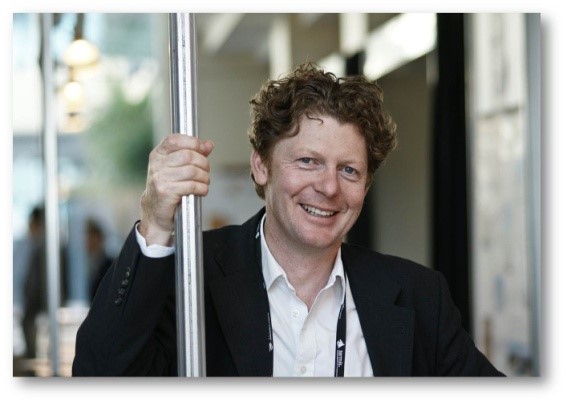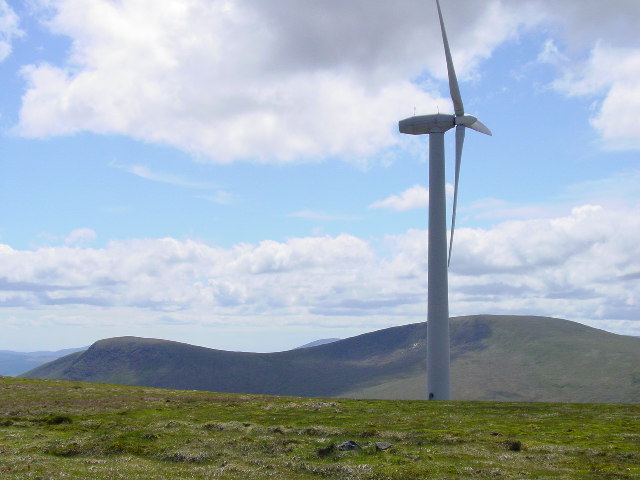A part-time farmer who plans to switch over from a traditional dry stock enterprise to a plant-based operation, and who has a wind turbine on his coastal farm; Colm O’Dowd’s outlook is as broad as his portfolio of projects.
Married with three children, he bought an 11-acre farm in Middlethird, Oranmore, in 2007, having relocated from Dublin. “The farm had dilapidated buildings and a small farm-yard on the site. We built a new house and moved in the summer of 2010.”
O’Dowd’s background is in biotechnology; he specialised in marine biotechnology. Previously he was CEO of a biomaterials company, which he co-founded in 2010 as a spin-out from NUI Galway. The company, which developed implantable materials for the ‘med tech’ industry, was taken over by a Chinese consortium in 2014.
Since then he has been providing funding and research and development strategy support to: multi-national corporations; SMEs (small and medium-sized enterprises); academics; and research organisations on a contract basis.
A lot of his work involves preparing and managing funding proposals – for example EU funds like Horizon 2020 and INTERREG for various clients on a diverse range of topics. They include: science; engineering; ‘med tech’; health; and innovation.
“With some exceptions, I can do most of my work from home, which suits family and farm life,” O’Dowd said. That flexibility also facilitates his involvement in social farming through South West Mayo Development Company.
He began the restoration of the existing farm buildings in 2013. “They were in a poor state of repair. In 2015, I applied for CEDRA [Commission for the Economic Development of Rural Areas] funding to carry out renovations to prepare it for social farming. That process was really efficient and straightforward. I was really impressed with it,” he said.
The funding was used to: put in pathways; create a set-down area; replace the concrete floors in the building; and install new doors and windows, and generally make the farm yard a safe place to work.
The transition from dry stock to plant-based agriculture was prompted by the convergence of a number of factors, he said. “They included economics and sustainability, great encounters with vegetarianism and great encounters with a local start-up, MACROVegan Ltd,” he said.
“Until this year, we have had cattle and sheep on the farm. We also kept a few pigs until a few weeks ago. Keeping animals on the farm was interesting and enjoyable but it was more like an expensive hobby than an effective enterprise. And that was fine for a while,” said O’Dowd.
“However, when I began looking at real costs of producing food from animals on a small scale – the capital costs, the labour, the fodder, the water – it didn’t really make sense. Indeed, based on my research, if I could have produced on a larger scale, it would make less sense.
When I went to the supermarket, I wondered how can meat be so cheap? Have a steak on a Tuesday and live a little? The average farmer gets very little from the entire process even though they put in most of the time and effort.
“In my view, meat production is a very poor use of resources and is not sustainable for rural communities,” he said.
“As an entrepreneur and scientist, I spent a lot of time in Israel between 2010 and 2014. When we returned home, my family and I began to really enjoy Middle Eastern cooking, especially the vegetarian dishes. We began to appreciate the health benefits and diversity of plant-based diets also. Up to then, I didn’t think I could survive without meat.
“In Israel, we got a look at intensive animal rearing and dairy production and didn’t like what we saw,” he said.
“More recently, I had been doing some work for MACROVegan Ltd, which is run by a local dynamic duo, and long-time plant-based nutrition enthusiasts, Bill and Marlene Tara. Bill and Marlene are experts in plant-based nutrition, vegan cookery and human ecology.
“I was researching the vegetarian and vegan food product markets globally and found some interesting results. There has been a massive escalation of products globally with vegetarian or vegan claims. Across Europe it is growing in double and even treble digit figures,” he said.
“Yet, there is little or no information on veganism and vegetarianism from organisations including Bord Bia, Failte Ireland and Teagasc. Moreover, there are no references to veganism and vegetarianism in the Food Harvest 2020 Report or indeed the Food Wise 2025 report.
I believe that rural Ireland has a great opportunity here, and rather than sell expensive-to-produce grass-fed beef cheap, why not sell cheap-to-produce plant-based products into premium markets?
“I think some of the main problems are education, innovation and creativity,” O’Dowd said.
“We need to change the attitudes of many to see the potential and the future that plant-based food products can offer Ireland Inc. It’s a lucrative diversification alternative, not to mention helping to offset greenhouse gas emissions which is the elephant in the room.”
To begin to address this, O’Dowd’s plan is to establish a plant-based cookery school on the farm in cooperation with MACROVegan Ltd. “MACROVegan already has a steady stream of international clients but we want to expand this at Middlethird to take advantage of the growing market demand. We intend to build on education to a point where we can start innovating with new food products in new markets.”
There hasn’t been resistance from other farmers, he said. “There has just been a bit of slagging, but all good fun. Veganism is not easy nor does it have nice connotations but plant-based feels better.”
“Needless to say, veganism wouldn’t be good for the farming business if everyone went vegan overnight. However, given the health concerns associated with excessive meat consumption, the links with dairy and cancer and the environmental challenges such as CO2 / greenhouse gas emissions, I think it’s a topic that we all need to consider.
“Moreover, vegetarianism is a growing trend globally. It should appear on the national food strategy reports if we are going to take advantage of this market growth. It should also appear on HSE reports,” he said.
Another hot topic is wind turbines. “I totally understand why people would not like them especially when they are arranged sporadically on a hillside. I always liked them. I lived in north Holland for a while and I loved cycling by rows of turbines. The subsidies paid is always an issue that’s brought up.
“However, the true costs of other forms of power such as nuclear in Germany – and its wastes – would compare poorly with wind in the long term. The turbine supplying Middlethird is small. It doesn’t require planning permission, which I do find a bit surprising.
Neither can I sell electricity to my neighbours so it doesn’t make sense on a national level. We produce about five times more than we use at present.
O’Dowd is an advocate of social farming, which he facilitates on his holding. “I began looking at social farming as a possibility in 2015 after hearing about it from another farmer. I knew immediately that Middlethird could offer a special experience. We live in a fantastic place overlooking Galway Bay and the hills of the Burren in Clare,” he said.
“Initially, we focused on children’s Easter and summer camps. Some friends and I visited a social farming workshop in Kilkenny last year and got involved with Social Farming Ireland and stayed in touch. We began hosting social farming participants from the Brothers of Charity Services about six weeks ago. We have four participants every week for a 10-week block.
“It’s part of a pilot study and a research study. However, we do hope our current participants will continue to be supported and indeed that others will also have the opportunity to participate. The evidence from Europe for social farming over the past 40 years is clear.
“The past six weeks at Middlethird have certainly been very positive also. The process has been great. Social Farming Ireland has made a rather complicated process relatively pain-free and straightforward. There are training, legal, insurance and health and safety issues to be overcome but nothing too onerous.”
On-farm workshops are also offered. “I felt that Middlethird Farm would be a great place for lots of children to visit and enjoy. Eilish, my neighbour, who is an artist, proposed art workshops on the farm. It’s fantastic to see the creativity of the children and the work that they produce from bits and pieces they find on the farm or along the shore.”
Looking to the future, O’Dowd has plenty of plans. “I have submitted an expression of interest for LEADER funding to develop the social farm and the plant-based cookery school projects further.
Ultimately, I see the social farming activities supporting the cookery school and health education centre.
“I also see an opportunity for education in sustainability and ecology on the farm. The vision is to create farm enterprises based on sound environmental, social and economic principles that support an all-inclusive society and promote good health and wellbeing in our community,” he said.
“I want to see the farm enhance local employment opportunities and hope that our activities will inspire others across rural Galway.”
